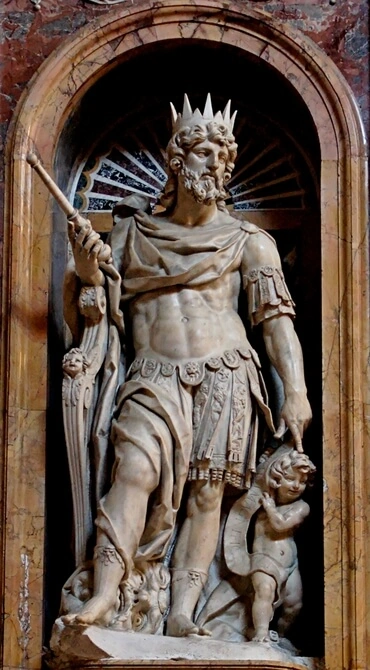19. Verse 4. John signifies the Lord in respect to doctrine. This is evident from the representation of "John," as being the good of love (of which above, n. 8). Because he represents the good of love, he also in the highest sense represents the Lord, since all the good of love is from the Lord. Man, spirit, and angel, are only recipients, and they who are recipients are said to signify that which is from the Lord. It is similar with many others in the Word, as with Abraham, Isaac, Jacob, David, Elijah, Elisha, John the Baptist, Peter, and the other apostles; each one of whom signifies some good or truth of heaven and the church, yet all of them, in the highest sense, signify the Lord. For instance, "David," in the internal sense, signifies Divine truth in the spiritual kingdom, which is called the royalty of the Lord; for this reason, David in the highest sense signifies the Lord in respect to that truth and in respect to royalty; on which account it is said of David in the Word, that he is to come and reign over the sons of Israel (Ezekiel 37:24, 25; Hosea 3:5).
In like manner Elijah and Elisha, who, because in the internal sense they signify the Word, in the highest sense signify the Lord, from whom the Word is. (That "Elijah" and "Elisha" signify the Word, thus the Lord in respect to the Word, see Arcana Coelestia 2762, 5247; likewise "John the Baptist," who is therefore called "Elijah," n. 7643, 9372. That "Peter" signifies faith, and therefore the Lord in respect to faith, because faith is from the Lord, see above, n. 9) From this it can be seen why "John" signifies the Lord. He signifies the Lord in respect to doctrine because it is said, "John to the seven churches," and by "the seven churches," in the internal sense, are meant all who are in truths from good, or in faith from charity; for it is these that constitute the church; and doctrine is what teaches these truths. From this it is that as the Lord is the Word, so is He also the doctrine of the church, for all doctrine is from the Word. (That the Lord is the doctrine of the church, because all truth that is of doctrine is from the Word, thus from the Lord, see Arcana Coelestia 2531, 2859, 3712)







